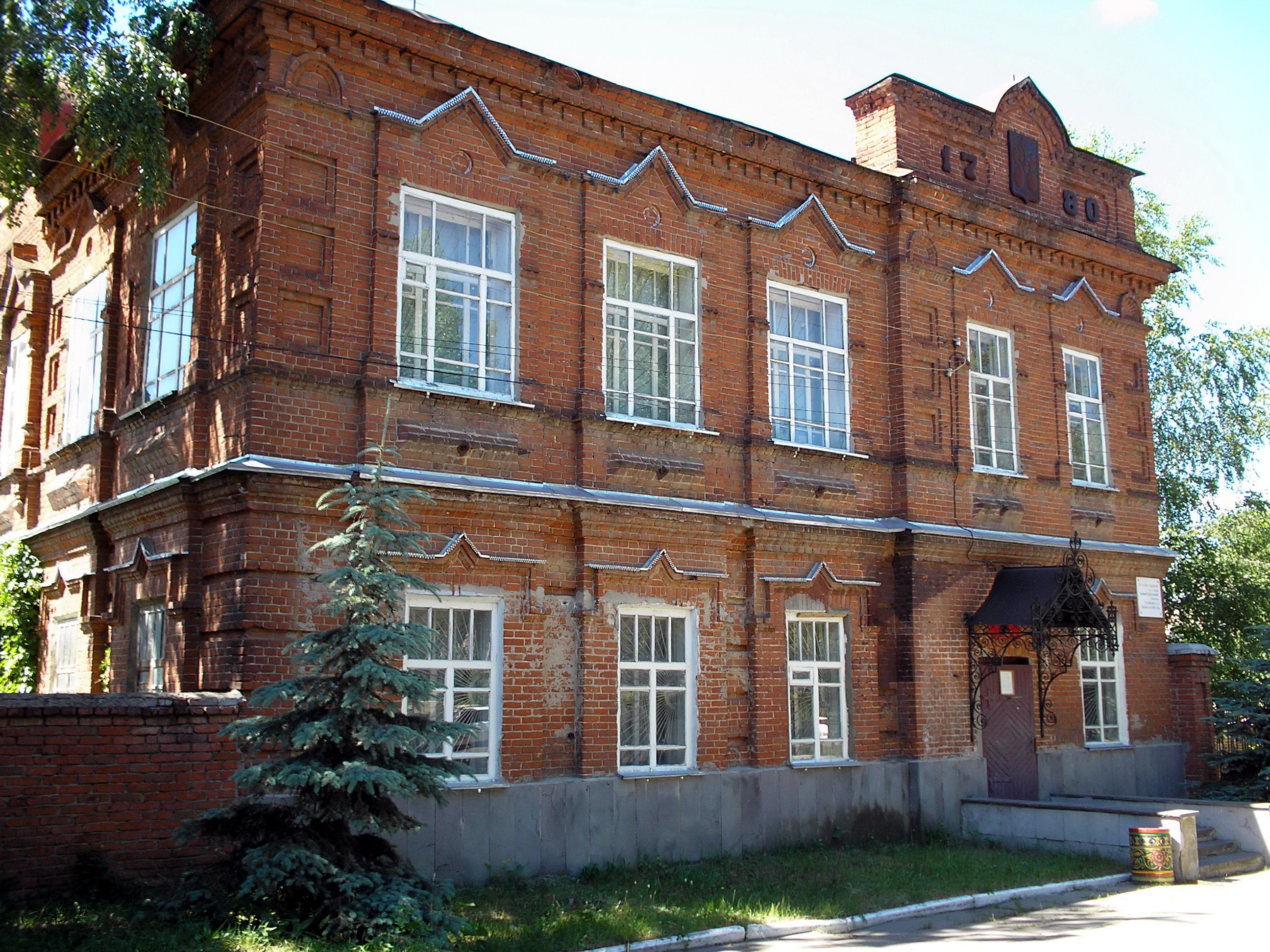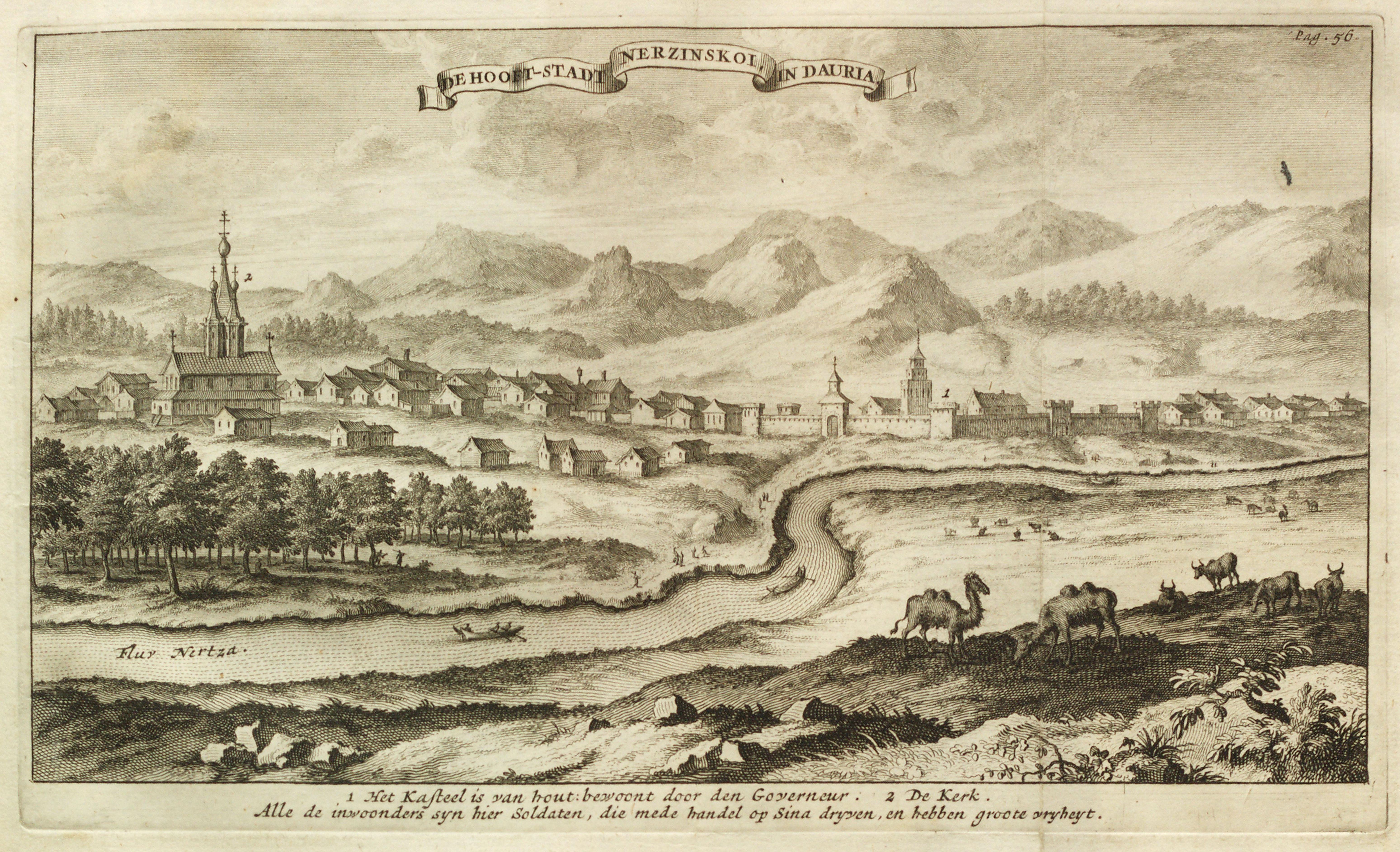|
Nikolai Ishutin
Nikolai Andreyevich Ishutin (russian: Николай Андреевич Ишутин; 3 (15) April 1840 – 5 (17) January 1879) was one of the first Russian utopian socialists, who combined socialist propaganda with conspiratorial and terrorist tactics. Ishutin was a hereditary noble in his hometown of Serdobsk. He was raised in Penza by the family of his cousin Dmitry Karakozov. In 1863, he became a lecturer at Moscow State University, where he propagandized among the students. That same year Ishutin organized a secret revolutionary society, which would come to be known as the Ishutin Society. On April 8, 1866, he was arrested in connection with his cousin Karakozov's assassination attempt on Tsar Alexander II. The Supreme Criminal Court sentenced Ishutin to death by hanging, which was commuted to exile for life shortly before his scheduled execution. Ishutin was placed in solitary confinement in Shlisselburg Fortress until May 1868, when he was transferred, mentally ill, ... [...More Info...] [...Related Items...] OR: [Wikipedia] [Google] [Baidu] |
Serdobsk
Serdobsk (russian: Сердо́бск) is a types of inhabited localities in Russia, town and the administrative center of Serdobsky District in Penza Oblast, Russia. Population: Geography It is located on the Serdoba River (Don River (Russia), Don's drainage basin, basin), southeast of Penza. Climate The climate is moderately Continental climate, continental. The winter in Serdobsk is moderately cold and long lasting from the beginning of November to the end of March. The coldest month is February with an average temperature of -9.1 °C. Summer is warm, lasting from late May to early September; the average July temperature is 20.4 °C. The average annual temperature is 5.5 °C. The climate is similar to Moscow, but the continentality is higher and the precipitation lower. History Founded by Alexander Aleksandrovich of Penza in 1698, it has been known since 1699 as Serdobinskaya sloboda (). Since the mid-18th century, it had been called Bolshaya Serdoba (). ... [...More Info...] [...Related Items...] OR: [Wikipedia] [Google] [Baidu] |
Revolutionary
A revolutionary is a person who either participates in, or advocates a revolution. The term ''revolutionary'' can also be used as an adjective, to refer to something that has a major, sudden impact on society or on some aspect of human endeavor. Definition The term—both as a noun and adjective—is usually applied to the field of politics, but is also occasionally used in the context of science, invention or art. In politics, a revolutionary is someone who supports abrupt, rapid, and drastic change, usually replacing the status quo, while a reformist is someone who supports more gradual and incremental change, often working within the system. In that sense, revolutionaries may be considered radical, while reformists are moderate by comparison. Moments which seem revolutionary on the surface may end up reinforcing established institutions. Likewise, evidently small changes may lead to revolutionary consequences in the long term. Thus the clarity of the distinction between revolu ... [...More Info...] [...Related Items...] OR: [Wikipedia] [Google] [Baidu] |
Moscow State University Faculty
Moscow ( , US chiefly ; rus, links=no, Москва, r=Moskva, p=mɐskˈva, a=Москва.ogg) is the capital and largest city of Russia. The city stands on the Moskva River in Central Russia, with a population estimated at 13.0 million residents within the city limits, over 17 million residents in the urban area, and over 21.5 million residents in the metropolitan area. The city covers an area of , while the urban area covers , and the metropolitan area covers over . Moscow is among the world's largest cities; being the most populous city entirely in Europe, the largest urban and metropolitan area in Europe, and the largest city by land area on the European continent. First documented in 1147, Moscow grew to become a prosperous and powerful city that served as the capital of the Grand Duchy that bears its name. When the Grand Duchy of Moscow evolved into the Tsardom of Russia, Moscow remained the political and economic center for most of the Tsardom's history. When the T ... [...More Info...] [...Related Items...] OR: [Wikipedia] [Google] [Baidu] |
Narodniks
The Narodniks (russian: народники, ) were a politically conscious movement of the Russian intelligentsia in the 1860s and 1870s, some of whom became involved in revolutionary agitation against tsarism. Their ideology, known as Narodism, Narodnism or (russian: народничество; , similar to the German ), was a form of agrarian socialism though is often misunderstood as populism. The (; meaning 'going to the people') campaigns were the central impetus of the Narodnik movement. The Narodniks were in many ways the intellectual and political forebears and, in notable cases, direct participants of the Russian Revolution—in particular of the Socialist-Revolutionary Party, which went on to greatly influence Russian history in the early 20th century. History Narodnichestvo as a philosophy was influenced by the works of Alexander Herzen (1812–1870) and Nikolay Gavrilovich Chernyshevsky (1828–1889), whose convictions were refined by Pyotr Lavrov (1823–1900) and ... [...More Info...] [...Related Items...] OR: [Wikipedia] [Google] [Baidu] |
1879 Deaths
Events January–March * January 1 – The Specie Resumption Act takes effect. The United States Note is valued the same as gold, for the first time since the American Civil War. * January 11 – The Anglo-Zulu War begins. * January 22 – Anglo-Zulu War – Battle of Isandlwana: A force of 1,200 British soldiers is wiped out by over 20,000 Zulu warriors. * January 23 – Anglo-Zulu War – Battle of Rorke's Drift: Following the previous day's defeat, a smaller British force of 140 successfully repels an attack by 4,000 Zulus. * February 3 – Mosley Street in Newcastle upon Tyne (England) becomes the world's first public highway to be lit by the electric incandescent light bulb invented by Joseph Swan. * February 8 – At a meeting of the Royal Canadian Institute, engineer and inventor Sandford Fleming first proposes the global adoption of standard time. * March 3 – United States Geological Survey is founded. * March 11 – The ... [...More Info...] [...Related Items...] OR: [Wikipedia] [Google] [Baidu] |
1840 Births
__NOTOC__ Year 184 ( CLXXXIV) was a leap year starting on Wednesday (link will display the full calendar) of the Julian calendar. At the time, it was known as the Year of the Consulship of Eggius and Aelianus (or, less frequently, year 937 ''Ab urbe condita''). The denomination 184 for this year has been used since the early medieval period, when the Anno Domini calendar era became the prevalent method in Europe for naming years. Events By place China * The Yellow Turban Rebellion and Liang Province Rebellion break out in China. * The Disasters of the Partisan Prohibitions ends. * Zhang Jue leads the peasant revolt against Emperor Ling of Han of the Eastern Han Dynasty. Heading for the capital of Luoyang, his massive and undisciplined army (360,000 men), burns and destroys government offices and outposts. * June – Ling of Han places his brother-in-law, He Jin, in command of the imperial army and sends them to attack the Yellow Turban rebels. * Winter – Zha ... [...More Info...] [...Related Items...] OR: [Wikipedia] [Google] [Baidu] |
Nerchinsk
Nerchinsk ( rus, Не́рчинск; bua, Нэршүү, ''Nershüü''; mn, Нэрчүү, ''Nerchüü''; mnc, m=, v=Nibcu, a=Nibqu; zh, t=涅尔琴斯克(尼布楚), p=Niè'ěrqínsīkè (Níbùchǔ)) is a town and the administrative center of Nerchinsky District in Zabaykalsky Krai, Russia, located on the left bank of the Nercha River, above its confluence with the Shilka River, east of Lake Baikal, about west of the Chinese border, and east of Chita, the administrative center of the krai. Population: 6,713 (1897). Town name in other languages Two important treaties between the Russian Empire and Manchu China mention Nerchinsk: the 1689 Treaty of Nerchinsk and the 1727 Treaty of Kyakhta. Non-Russian comments on these treaties or on the history of the town may mention other names: *Latin: Nipchou or Nipcha (however, the Treaty of Kyakhta called the town Nipkoa) *Manchu: Nibcu hoton *Chinese: 尼布楚; Pinyin: Níbùchǔ History The fort of Nerchinsk dates ... [...More Info...] [...Related Items...] OR: [Wikipedia] [Google] [Baidu] |
Shlisselburg Fortress
The fortress at Shlisselburg is one of a series of fortifications built in Shlisselburg on Orekhovy Island in Lake Ladoga, near the present-day city of Saint Petersburg, Russia. The first fortress was built in 1323. It was the scene of many conflicts between Russia and Sweden and changed hands between the two empires. During World War II, it was heavily damaged. Today it is part of the UNESCO World Heritage site Historic Centre of Saint Petersburg and Related Groups of Monuments. Origins A wooden fortress named Oreshek () or Orekhov () was built by Grand Prince Yury of Moscow (in his capacity as Prince of Novgorod) on behalf of the Novgorod Republic in 1323. It guarded the northern approaches to Novgorod and access to the Baltic Sea. The fortress is situated on Orekhovets Island whose name refers to nuts in Swedish as well as in Finnish (''Pähkinäsaari'', "Nut Island") and Russian languages. After a series of conflicts, a peace treaty was signed at Oreshek on August ... [...More Info...] [...Related Items...] OR: [Wikipedia] [Google] [Baidu] |
Hanging
Hanging is the suspension of a person by a noose or ligature around the neck.Oxford English Dictionary, 2nd ed. Hanging as method of execution is unknown, as method of suicide from 1325. The ''Oxford English Dictionary'' states that hanging in this sense is "specifically to put to death by suspension by the neck", though it formerly also referred to crucifixion and death by impalement in which the body would remain "hanging". Hanging has been a common method of capital punishment since medieval times, and is the primary execution method in numerous countries and regions. The first known account of execution by hanging was in Homer's ''Odyssey'' (Book XXII). In this specialised meaning of the common word ''hang'', the past and past participle is ''hanged'' instead of ''hung''. Hanging is a common method of suicide in which a person applies a ligature to the neck and brings about unconsciousness and then death by suspension or partial suspension. Methods of judicial hanging T ... [...More Info...] [...Related Items...] OR: [Wikipedia] [Google] [Baidu] |
Alexander II Of Russia
Alexander II ( rus, Алекса́ндр II Никола́евич, Aleksándr II Nikoláyevich, p=ɐlʲɪˈksandr ftɐˈroj nʲɪkɐˈlajɪvʲɪtɕ; 29 April 181813 March 1881) was Emperor of Russia, Congress Poland, King of Poland and Grand Duke of Finland from 2 March 1855 until Assassination of Alexander II of Russia, his assassination in 1881. Alexander's most significant reform as emperor was the emancipation reform of 1861, emancipation of Serfdom in Russia, Russia's serfs in 1861, for which he is known as Alexander the Liberator ( rus, Алекса́ндр Освободи́тель, r=Aleksándr Osvobodytel, p=ɐlʲɪˈksandr ɐsvəbɐˈdʲitʲɪlʲ). The tsar was responsible for other reforms, including reorganizing the judicial system, setting up elected local judges, abolishing corporal punishment, promoting local self-government through the ''zemstvo'' system, imposing universal military service, ending some privileges of the nobility, and promoting university e ... [...More Info...] [...Related Items...] OR: [Wikipedia] [Google] [Baidu] |
Assassination
Assassination is the murder of a prominent or important person, such as a head of state, head of government, politician, world leader, member of a royal family or CEO. The murder of a celebrity, activist, or artist, though they may not have a direct role in matters of the state, may also sometimes be considered an assassination. An assassination may be prompted by political and military motives, or done for financial gain, to avenge a grievance, from a desire to acquire fame or notoriety, or because of a military, security, insurgent or secret police group's command to carry out the assassination. Acts of assassination have been performed since ancient times. A person who carries out an assassination is called an assassin or hitman. Etymology The word ''assassin'' may be derived from '' asasiyyin'' (Arabic: أَسَاسِيِّين, ʾasāsiyyīn) from أَسَاس (ʾasās, "foundation, basis") + ـِيّ (-iyy), meaning "people who are faithful to the founda ... [...More Info...] [...Related Items...] OR: [Wikipedia] [Google] [Baidu] |

.jpg)





.jpg)
